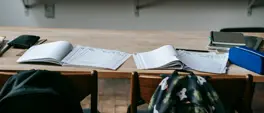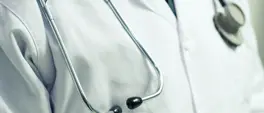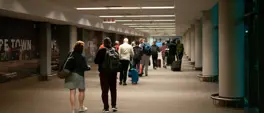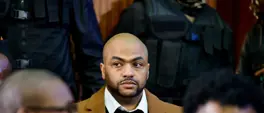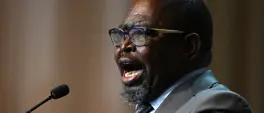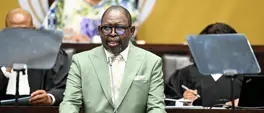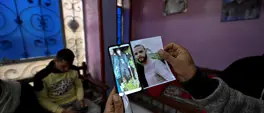VUKILE DLWATI: Why govt thinks it can pull wool over SASSA beneficiaries’ eyes
Vukile Dlwati
20 August 2025 | 8:07The agency’s attempt to clean house - targeting ghost beneficiaries and corrupt internal actors - has caused chaos for those who actually need the help.
- South African Social Security Agency (SASSA)
- Government of national unity (GNU)
- Social Relief of Distress (SRD) grant
- 2026 Municipal elections
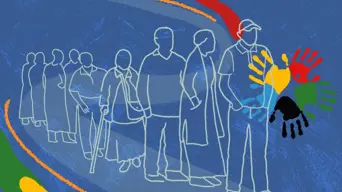
Illustration: Lisa Nelson/GroundUp
Every month, millions of South Africans queue in the early hours of the morning, standing in the cold, in long, snaking lines outside SASSA offices or ATMs, waiting for money that is rightfully theirs.
It's a deeply painful irony: these grants come from the State but are funded by tax-paying citizens. And still, the people wait, humiliated by inefficiency and broken systems.
Watching these queues unfold is like watching a theatre of political betrayal. It reminds me of the words of Bob Marley:
“It takes a revolution to make a solution;
Too much confusion, so much frustration.”
Marley’s lyrics feel like a prophecy. South Africa is a nation of many revolutions - armed, political, ideological - but real change remains just out of reach.
The people rise up, yet the system never truly shifts. SASSA beneficiaries are the living, breathing embodiment of this cycle: caught between survival and systemic failure.
The grants they receive are minimal:
- R2,000 for old-age pensioners,
- R370 for the Social Relief of Distress (SRD) grant, after a meagre R20 increase,
- R1,250 for foster care support per child.
What can R370 buy in this country for an entire month? A bag of maize meal, maybe some basic hygiene products and not much else. And yet, some critics wonder why some grant recipients spend it on alcohol or fast food. Perhaps it’s not indulgence, but a desperate attempt to feel human again, to numb the reality of structural abandonment.
This, too, is a form of revolt. When you’ve been ignored, excluded and discarded for decades, even survival becomes a statement of resistance.
Take Zanele Hlazo, who recently told Eyewitness News how she was cut off from receiving her SASSA grant because her daughter had sent her money.
"I am so mad! Why does government take us for fools?" she asked.
Her daughter’s act of compassion was seen as a disqualifier, not support. That’s how broken the system is, punishing the poor for any hint of help.
The agency’s attempt to clean house - targeting ghost beneficiaries and corrupt internal actors - has caused chaos for those who actually need the help.
While fraud must be addressed, why does this effort come at the cost of innocent, desperate citizens?
Visit the Johannesburg SASSA office on Harrison Street at 5am and you’ll see elderly citizens wrapped in blankets, waiting in the cold, their breath visible in the air. This isn’t just a city failing its people, it’s a country in crisis.
The recent bungled rollout of Postbank black cards is yet another symptom of state dysfunction. Poor planning, opaque communication and a disregard for human dignity have rendered thousands of grant recipients hopeless and stranded. This is the reality at SASSA centres across the country.
The truth is, power in South Africa is a fallacy. Politicians only show up when they want to remind us that they exist…when it’s time to play politics, perform goodwill or manufacture legitimacy. But real governance? Real accountability? That’s always somewhere else. Delayed. Deferred.
This is a traumatised nation, still aching from the promises of a freedom that has yet to fully arrive, and while we are told to be patient, to be grateful, the daily indignities continue.
We now live under the so-called Government of National Unity (GNU), a fragile, uneasy coalition of former political rivals: the ANC, DA, IFP, PA, GOOD, PAC, FF+, UDM, Al Jama-ah, and Rise Mzansi. On paper, it’s a rainbow of ideologies. It’s a patchwork of political self-preservation.
The GNU, much like SASSA, has become a symbol of dashed hopes. It reminds us that revolutions may spark change, but power always finds a way to protect itself.
Let us not forget: this country’s history is synonymous with revolution. The youth of 1976 fought against an education system designed to dehumanise and erase them. Today’s youth, too, are rising, some silently, some loudly, but all with a sense of knowing.
We are seeing the collapse of the "bread and circuses" strategy, a tactic used by those in power to pacify the public with the bare minimum of survival and distraction. But it no longer works. People are paying attention. They see the cracks. They are no longer sedated by survival.
As the next local government elections draw near, I believe a silent revolution is brewing. It won’t be loud. It may not even look like a revolution. But when it comes, it will humble those who thought they were untouchable.
South Africa is on the verge of something powerful. Not a coup, not chaos, but a collective reckoning. A remembering of the power that lives in the people.
Because when that collective stands up, the cookie crumbles.
Get the whole picture 💡
Take a look at the topic timeline for all related articles.
Trending News
More in Opinion
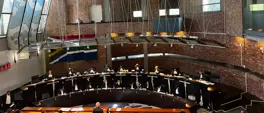
23 February 2026 11:45
CHRIS OXTOBY & JUDITH FEBRUARY | Is there a crisis of ethics in the South African judiciary?
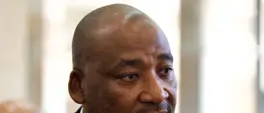
20 February 2026 14:45
JAMIL F. KHAN | Democratic institutions must be protected from rising religious fundamentalism
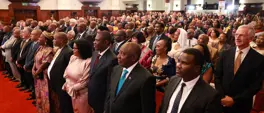
19 February 2026 05:15
CHARLES MATSEKE | From State of the Nation to Republic of Commissions: SA's playhouse of accountability
